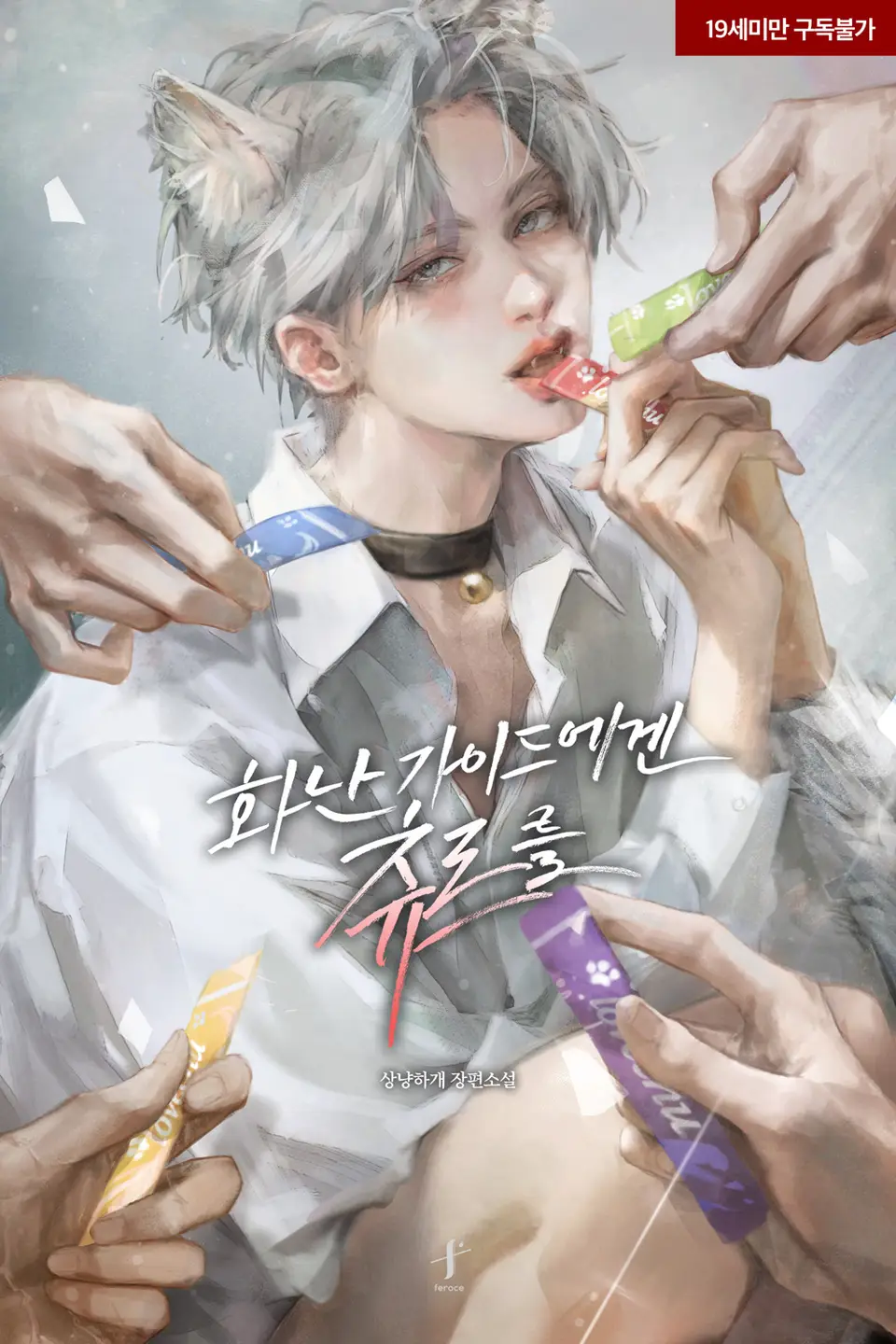Deborah couldn’t remember her name before she became “Deborah.”
Even though she couldn’t recall even that short name, she still had vague memories of the life she once lived, the useful knowledge she had gained from that world, and the wisdom that only came from real experiences.
So, the story Deborah remembered — the one where “Zen” was the male lead — was part of that leftover knowledge.
It seemed Deborah had read many stories before she became “Deborah.”
“Though I can’t remember exactly.”
Among all the stories she read, the most intense and disturbing one was Now No One Can Leave Me Anymore.
It was about Dia Blythe, the only daughter of a fallen noble family.
One day, Zen Baker, a foreign bourgeois, appeared in front of her.
For some reason, he had a deep hatred for Duke Byrne, and he made Dia an offer that sounded more like a threat.
“Become my wife. And become the darling of this damned social circle. Let me rise in this place. If you do, I’ll pay off all your family’s debts.”
For Zen, who was from another country, to enter the conservative Grossian social world, he needed a wife of noble birth.
To climb even higher, he needed a title.
Dia was a good match for him. She was beautiful, and although her family had no money, she was part of the historic Count Blythe family.
Since Dia was an only child, if Zen married her and they had a child, he would become Count Blythe by the kingdom’s laws.
Dia was scared of Zen, who was arrogant and cold, but her mother pressured her to escape their terrible poverty.
In the end, Dia accepted her fate.
Zen, always busy, held the wedding right after Dia arrived in the capital city, Dover.
The wedding dress was glamorous but uncomfortable. The ring was beautiful but heavy, something she’d never wear in everyday life.
All of it felt like a warning of what her future would be like.
After the wedding, Dia had to go through constant lessons.
“You can’t attend banquets or parties looking like that. One word out of your mouth and people will know how uneducated you are.”
“……”
“I don’t have time. Learn how to become a proper lady as soon as possible. And if you can’t, at least pretend.”
While struggling to keep up with the harsh lessons, one day, Duke Byrne was set to attend a ball.
Zen couldn’t miss the chance and took Dia with him.
That’s when Dia’s misfortune really began.
The nobles attacked her with words.
Her tutors and even the maids who helped dress her also mentally bullied her.
Dia, a country girl, was hurt both outside and inside the Baker household.
But Zen didn’t comfort her — he only treated her coldly.
Then one day, Dia discovered Zen’s secret.
He was actually the illegitimate child of Duke Byrne.
She saw in Zen the child who had been abandoned.
There was no way she could hate a wounded child who only knew how to glare.
‘He’s just in pain and hurting. That’s why he screams out like this.’
Dia knew she couldn’t save Zen, but she hoped she could at least comfort him.
It didn’t take long for her pity to turn into love.
And love led to desire.
‘If I try a little harder, maybe he’ll smile at me? Even if it’s far in the future. Even just a little… maybe he’ll love me.’
But Zen never gave her his heart. He only made “efforts” with her to produce an heir and become Count Blythe.
And in that loveless act, no child came.
Was that a blessing or a curse?
As Dia’s anxiety grew, one day a woman appeared, claiming she was pregnant with Zen’s child.
Dia was devastated.
In the end, she abandoned her love for Zen and her sense of duty to her family and ran away.
But Zen wasn’t someone who let his things go.
Determined to chase her to the ends of the earth, he eventually found Dia.
Then, grabbing her wrist and glaring at her with bloodshot eyes, he said,
“I don’t care if you slept with someone else or even if you’re pregnant with his child. You’re mine. I bought you. I won’t let anyone else take what’s mine. Never.”
So Dia was locked in a room in the Baker mansion where even sunlight couldn’t reach, and she lived a nightmare every day.
As Dia became weaker, Zen said that if she couldn’t give him a child, he would raise the other woman’s child as hers.
“What? What about the child’s mother?”
“I’ll just get rid of her.”
“You… You’re going to separate a child from their mother?!”
“You’re still worried about that woman? How angelic of you.”
With an icy face and even colder hands, Zen held Dia’s thin face and said,
“All I have left is revenge. And there’s nothing I won’t do for it.”
Just as Dia fell into despair, the story ended with the suggestion that Zen’s revenge would continue.
Deborah stared at the book, which had only blank pages left.
Though the story ended, their suffering likely didn’t — not even in death.
Deborah sighed.
What she felt reading the story didn’t matter.
What mattered was that the man standing in front of her now was the very male lead from that story.
Arrogant.
So trashy that even getting cursed out wasn’t enough.
A man who seemed completely clueless about love.
And yet, because he was that kind of man, Deborah never imagined the interviewer would be Zen.
‘He was arrogant, yes, but he still used formal speech.’
Even in the story, Zen’s speech was rough, but his actions were always elegant.
He was careful not to give anyone a reason to criticize him.
But just now, Zen had guzzled water with zero grace.
‘I was sure he couldn’t be Zen.’
But here he was, doing the interview himself.
And that expression he was giving Deborah — what was that?
He was staring at her desperately, as if he couldn’t believe it.
“…The Heather couple returned to their homeland eight years ago. Were you also in the capital until eight years ago?”
Zen’s trembling voice sounded like a plea.
His shaking words were caught and steadied by Deborah’s startled reply.
“No. I left the capital earlier for work. That was already ten years ago.”
At those words, Zen’s eyes turned red, like a child holding onto something precious.
“Th–”
Zen stepped toward her, forgetting his size, and bumped into the partition, knocking it over.
Crash!
Startled by the loud sound, Deborah clutched her chest and flinched.
Why was he crashing into everything in such a big room?
“…Ah.”
Zen looked at her anxiously, then quickly checked the surroundings.
A broken cup. A fallen table. A knocked-over partition.
Everything was a mess.
“Damn it.”
He muttered, roughly tousled his hair, then quickly lowered his hand.
“…I’ll step out for a bit. Please wait here.”
Zen’s beautiful golden eyes trembled badly as he spoke.
Even his throat bobbed with tension.
Sweat formed on his perfect forehead.
“What?”
“I’ll be back soon. Really, very soon. Just wait here for a moment.”
“Um…”
“You must not leave. Not until I return. Promise me.”
He stared at her intently.
His tone was forceful and persistent, but strangely, it felt like he was begging her.
So Deborah nodded before she even realized.
“Yes.”
With that short reply, part of Zen’s desperation seemed to melt away like sweat.
“Then… Excuse me.”
Zen left in a rush.
Left alone in the messy room, Deborah muttered quietly.
“…Huh?”
What just happened?
Meeting the male lead of that terrible story was already shocking enough.
But Zen’s strange behavior made everything even more confusing.
‘It’s like a storm just passed through.’
And storms never leave without blocking the way.
Now her plans were all delayed.
‘I wanted to leave right away.’
Even though the room was a mess, it was quiet now.
Deborah closed her eyes tightly and thought.
Why is the male lead trying to stop her from leaving?
Why?
No matter how much she thought about it, she couldn’t find a good answer.
It only made her heart more confused.
Crash! Thud!
The repeated noise had already scared the footman out of his wits.
What’s going on?
Did his difficult boss cause an accident?
If so, what should he do? Should he go in and stop it?
Or should he keep the shocked applicants calm?
He couldn’t choose.
Even if he had more time, he probably wouldn’t have made a good decision.
That’s when his employer appeared.
His hair was messy.
His clothes were wrinkled.
This master of his, who was always graceful even when cranky, looked like a wreck.
“You, there.”
Zen, breathing heavily, called out.
The footman, tense to the point his shoulders stiffened, quickly answered.
“Yes.”
“Send everyone home.”
“Are you saying the interviews are over?”
“Yes. So move right now…”
In the middle of speaking, Zen suddenly covered his mouth with his large hand.
He frowned briefly, then removed his hand and said,
“No, no. Forget that. Stay here and don’t let the lady inside leave. Not even a step. Understand?”
The footman couldn’t understand, but understanding was a luxury.
There was only one correct answer anyway.
“Yes. Understood.”
“I’ll be back soon.”
Zen rubbed his face with his hand, turned to leave, then looked back and said,
“If the lady wants anything — anything except to leave — give it to her. No rudeness allowed. Got that?”
“Yes. I’ll keep that in mind.”
The footman answered without showing any nerves.
Zen stared into his eyes, then walked away quickly with long strides.
As Zen’s figure disappeared in the distance, the footman thought,
‘Why such strict orders? The person inside is just a commoner.’
Even though bourgeoisie were technically commoners too, there was a huge gap between them and regular commoners.
Just like the wall between nobles and bourgeois still existed.
And his master, who wasn’t even friendly, was acting like this over someone?
‘What on earth is going on?’
He wanted to scratch the back of his head in frustration.
That’s when one of the applicants approached him.
“Excuse me.”
Yikes.
The footman thought she was going to complain about the noise and long wait.
‘What should I say?’
He couldn’t tell her to wait — the interview was over.
How should he respond without trouble?
But instead, the woman blushed, covered her face, and asked,
“Was that Mr. Baker who just came out?”
“Oh. Yes.”
“Oh my, I see. Thank you.”
She smiled shyly, gave him a polite nod, and returned to her seat.
Then she started whispering with another applicant beside her.
From the way she covered her red cheeks and spoke happily, she was clearly talking about Zen.
Watching the growing group of whispering women, the footman sighed.
‘My master’s looks really are something else. I mean, even I get shocked sometimes. I can’t imagine how first-timers must feel.’
With a face like that — and money, too — how could he not be happy?
He probably never wanted for anything in his life.
‘So jealous. Really jealous.’








